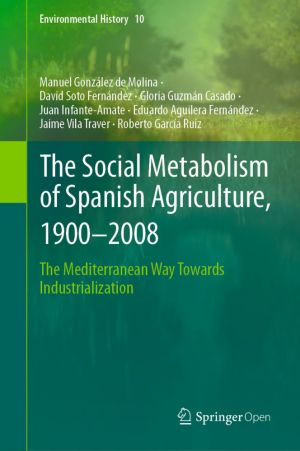- Регистрация
- 27 Авг 2018
- Сообщения
- 39,344
- Реакции
- 614,384
- Тема Автор Вы автор данного материала? |
- #1

This book provides a panoramic view of the evolution of Spanish agriculture from 1900 to the present, offering a more diverse picture to the complex and multidimensional reality of agrarian production. With a clear transdisciplinary ambition, the book applies an original and innovative theoretical and methodological tool, termed Agrarian Social Metabolism, combining Social Metabolism with an agroecological perspective. This integrative analysis is especially interesting for environmental scientists and policy makers being the best way to design sustainable agroecosystems and public policies capable of moving us towards a more sustainable food system.Spanish agricultural production has experienced impressive growth during the 20th century which has allowed it to ensure the supply of food to the population and even to transform some crops into important chapters in foreign trade. However, this growth has had its negative side since it was based on the injection of large amounts of external energy, on the destruction of employment and the loss of profitability of agricultural activity. But perhaps the most serious part is the strong impact of the current industrialised agriculture model on Spanish agroecosystems, exposed to the overexploitation of hydric resources, pollution of the water by nitrates and pesticides, high erosion rates and an alarming loss of biodiversity; damage which in the immediate future will end up reducing production capacity.
DOWNLOAD:



